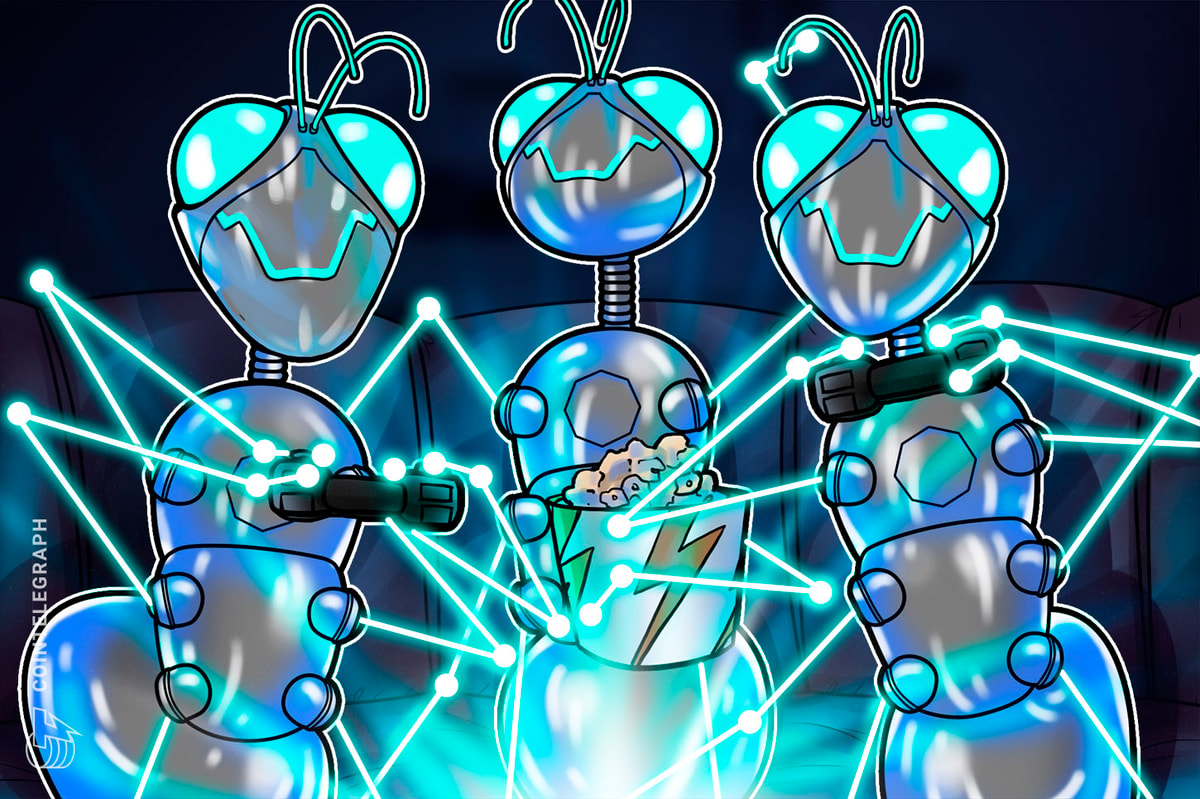
Just as a country’s borders drawn on a globe aren’t often exact, neither are the lines drawn on individual properties around much of the world. De Soto Inc., a socially-conscious joint venture between Overstock.com subsidiary Medici Ventures, Overstock founder Patrick Byrne and world-renowned Peruvian economist Hernando de Soto, has plans to solve the problems of property titles with a developed global property registry system utilizing decentralized blockchain technology.
The vision of de Soto and Byrne is a simple one: by making property rights and claims of individuals publicly recorded and globally verified, they can enable the poor to safely unlock the value of their land; help to mollify disputes by clearly stating who claims what property; and empower local land ownership.
The venture, announced in December 2017, pairs de Soto’s decades worth of reform experience as the founder of the Institute for Liberty and Democracy think tank with Patrick Byrne’s enthusiasm for bitcoin and the capabilities of its underlying blockchain technology. In an interview with Bitcoin Magazine, both men discussed the purpose of their ambitious undertaking.
De Soto Inc. aims to create a global property registry blockchain as a utility that will unlock dead capital, help five billion people have modernized property rights, give information necessary to settle property conflicts/disputes and to fight terrorism by undermining terrorists’ business model.
From de Soto’s perspective, the prospect of having the logistical and entrepreneurial support of Patrick Byrne and Medici Ventures behind his vision was important. With Byrne and Medici at his side, de Soto hopes the new venture will highlight the differences between government views on property rights and the actual reality of property rights.
The noted economist stated, “For me it’s very simple. I’ve been behind what blockchain means for the world for a while, and the whole issue [of property ownership] was a natural meeting place for us. It’s the entrepreneurial ability and the strength of Patrick to be able to pull all of these things together.”
Handling Multiple Property Ownership Systems on One Blockchain
Property laws around the world vary wildly based on country, political/religious systems and particular ideologies. China, for example, does not allow citizens to “own” property, but rather lease it from the government (albeit some leases are for up to 99 years). Other countries with nomadic histories can have more lax views on property ownership than western counterparts.The idea of individuals owning private property as a “freehold estate” that they can pass on to other generations is not ubiquitous. De Soto Inc. addressed how they would manage to account for all of these different types of property ownership systems on a single blockchain.
De Soto emphasized that they were not trying to give any opinion or show preference for one type of property system or one country’s system over others. “What we’re doing is providing all sides information as to how actually the informal economy holds its assets on the basis of the ledgers that we are going to obtain from them.”
As Byrne pointed out, property ownership may be described by what “the central government says...but then there are the people and what they say. This will put a sunlight on all kinds of disputes or disagreements. They will all be surfaced and be able to be dealt with, rather than just be the source of underlying [conflicts].”
Both men reiterated that De Soto Inc. doesn’t plan to actually solve the problems or act as a mediator or judge in any capacity, but that they plan to “provide MASSIVE information” that would provide a “digital shortcut” that would connect the formal legal ways of recognizing property ownership in underdeveloped and developing countries with the reality of property ownership experienced by the people in those countries. As de Soto puts it:
[E]ach country has its own way of coming into the global spectrum. What we are doing is providing all that missing [property ownership] information of the two-thirds of the world which isn’t [already] published and make the connection between the systems so that they work themselves out, clash by clash…making sure that all that information is side by side and can be compared and connected anywhere in the world.
Eminent Domain Meets the Blockchain
“If we think about eminent domain,” said de Soto, “most of the problems you have in my part of the world...is not knowing whose rights you are affecting. In other words, eminent domain says the state can expropriate in certain conditions. But when you get to places like Peru...like Ethiopia or the Niger Delta or Algeria… the eminent domain laws don’t apply.”
What we have found out is that everywhere in the world, where those property rights don’t seem to match the global system, everything is already on existing ledgers.
De Soto Inc. now seeks a way to make “that mosaic of information” common by using “expert systems and blockchain technology” to create a platform that will showcase not only where land ownership lies, but where contradictions are and “who really controls things on ground zero as opposed to the law books.”
While De Soto Inc.’s stance may seem anti-authoritarian at first blush, De Soto believes their platform will give “everybody, including authorities, an idea of the volume, the enormous volume of people outside the legal system.” Authorities can then be made aware of a property rights problem before miscommunication leads to further issues.
Property With Multiple Ownership Claims on It
De Soto and Byrne take a rather pragmatic view toward the idea of accounting for disputed territories.
“When you get on the ground,” de Soto said, ”there is no such thing as a territory overlapping another one; there’s always a fence. We’re getting to the fences.”
There are multiple schools of thought on property rights and possession interest that could cause friction of those fences, such as the rightful claims of ownership over Jerusalem, which is a holy city for three major religions.
But, as de Soto pointed out, most of the property disputes heard of were based on claims to ownership. In other words, whether you believe Tibet is an Autonomous Region of China, or that the Eastern Ukraine should be free from Russian control is less important at any given moment then who owns, polices, taxes and protects the land that is subject to dispute.
As Byrne put it, “We are going to document possession.” The implication laid out elsewhere in the interview is that whatever claims or issues go beyond the idea of ‘possession=ownership’ is for the parties to the dispute to resolve (or not). De Soto Inc. does not claim to opine on anything beyond possession, the basic code to property law.
Disrupting the Terrorist Business Model
While property disputes can be nasty, a particularly difficult form for De Soto Inc. to wrestle with seems to be adverse possession, where someone knows they don’t have ownership rights to the land and tries to claim it anyhow. The most extreme version of this could be viewed as terrorist control in areas of the world. Byrne and de Soto, however, had an answer to the subject of “terrorism.”
“The ledgers are not drawn up by the terrorists,” said de Soto. “The ledgers are drawn up by the local people.”
Byrne elaborated on de Soto’s point:
One of Hernando’s great discoveries is that the business model of a terrorist is going into those local guys who run the ledgers and saying, ‘We’ll recognize your ledger if you give us support.’ And we can disrupt [that].
He added that maybe the best way to fight terrorism is to fight the business model. “What we are doing is a business disruption of the business models of ISIS and FARC and Al Qaeda and all these guys. The best way to disrupt the terrorists is to disrupt their business model.”
Is De Soto Inc.’s plan a herculean undertaking? It seemed after speaking with both men that they will even acknowledge that. But given the potential impact on the planet, both Byrne and de Soto seemed staunchly convinced this was the right thing for them to go “all in” on.
While the venture is capitalistic, or as Byrne put it, “We may make a few shekels in the process and that’s OK…” He reiterated that the venture was primarily a socially conscious undertaking — the fruition of both his and Hernando de Soto’s life’s work.
De Soto Inc. has plans to scale up in as many new territories as possible. According to de Soto, “We have requests from heads of state that go from Sub-Saharan Africa to the Maghreb, to Latin America to Asia, once we get our act on the ground, we will see which [areas] we will take on first…there are no geographical priorities.”
If De Soto Inc. can deliver on its goals, the only geographic restriction (currently) on the blockchain property registry system will be planet Earth.










